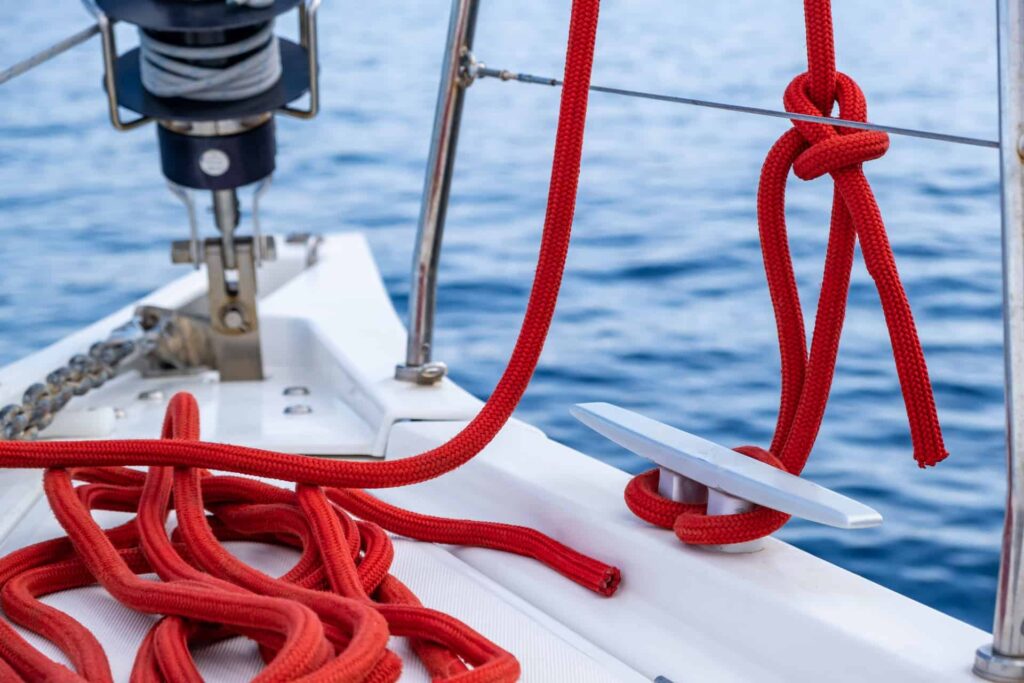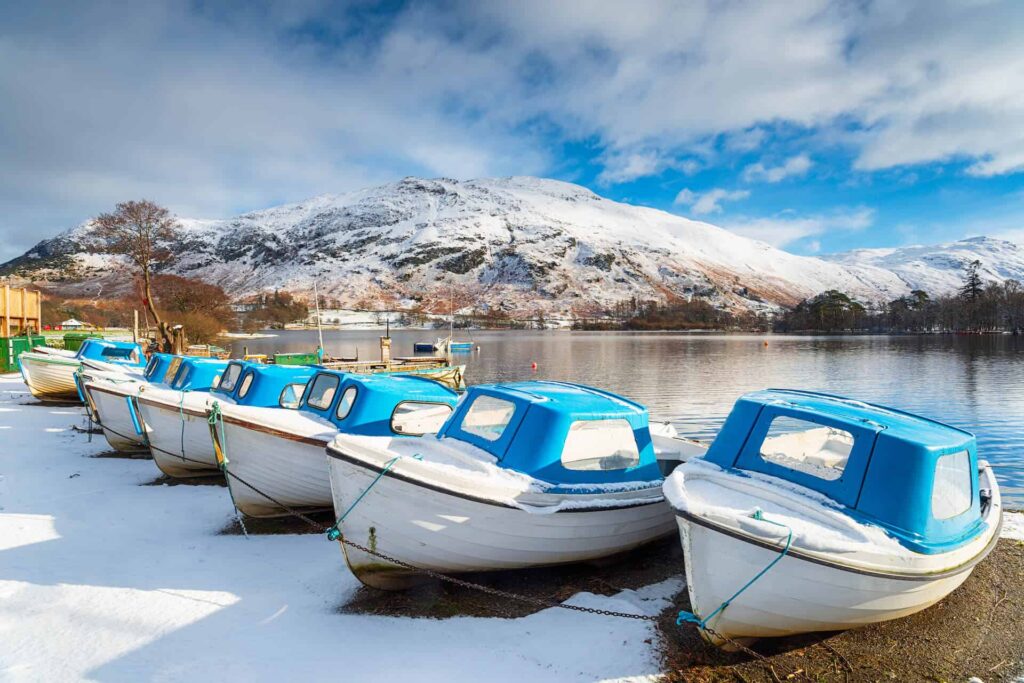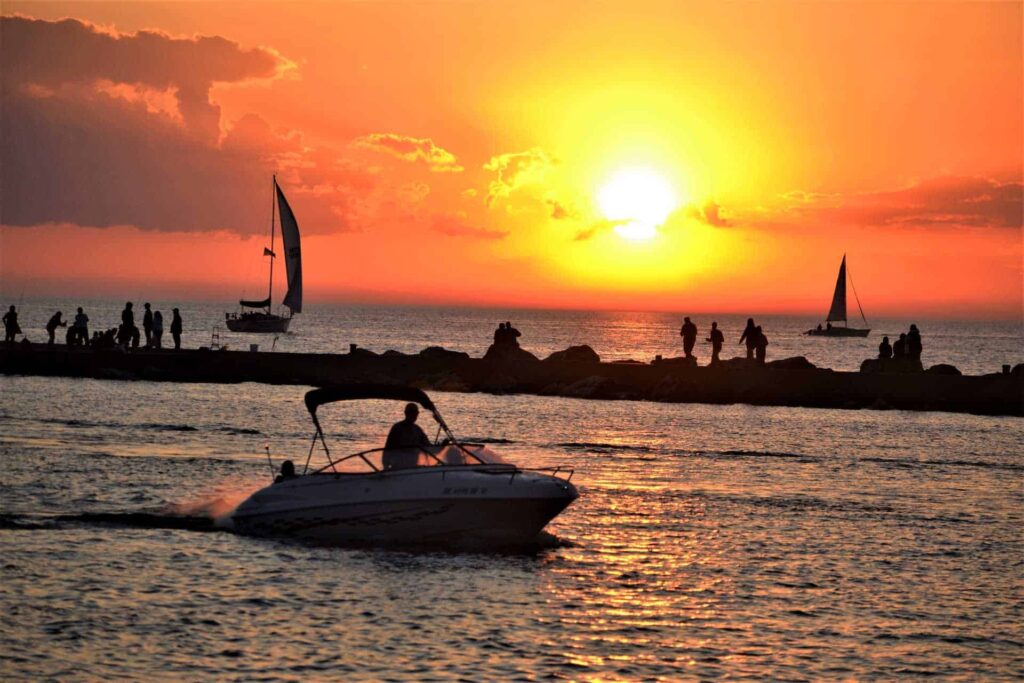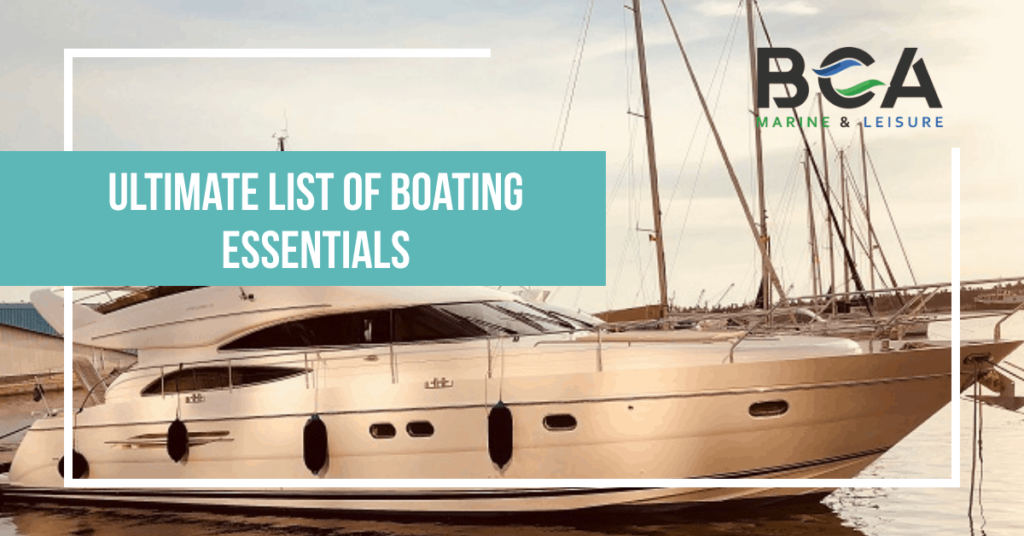Hitting the water for a day spent out on a boat can be a leisurely and relaxing activity for many, however, if you’re new to handling a boat or being on the water in general, there is a lot of thorough planning that needs to take place. Boating safety tips are a key factor to ensuring not only your own safety, but everyone else’s on board, those on the water, and on the shores too. Once you’ve got the hang of the pre-checks, the weather knowledge, and a few other handy tricks up your sleeves, you’ll be able to enjoy a day out responsibly in no time.
In this blog we will be listing off some important tips that you need to keep in mind as well as practice before ever stepping behind the wheel of a boat. Our boating safety guide will educate you on the proper checks and requirements, along with teaching you what to keep in mind every time you head out on the water.
Looking for relevant boating products and supplies? Browse our marine accessories today and make your purchase. Have a question? Contact us now.
Our Boating Safety Guide
Get Your Boating License
One of the first things you need to do before ever stepping foot behind the wheel of a boat, is securing your boat license. Depending on the type of boating you’ll be doing, you’ll need to do a bit of research to better understand the requirements – then, reach out to your local boating authority to know where to go to actually get your license.
Marine Radio & Other Gadgets
No matter the size of the boat you’re driving, it’s typically going to be gadget dependent, making it imperative that you understand the technology on board. Thanks to the progressive tech world that we live in today, sophisticated navigation tools are at our disposal, such as radars, autopilot systems, gyro stabilisers, magnetic compasses and so much more. Your boating gadgets narrow all the way down to safety equipment as well, such as lifejackets, anchors, distress flares and so on. Regardless of your boats set up, it’s important to get familiar with everything that’s on board before heading out onto the water.
Boating and Alcohol – Know the Rules
Just as the rules apply on the roads, they apply on the water. One of the most important boating safety tips is ensuring you understand the use of alcohol on board. The blood alcohol limit on the water is 0.05%, however, the wind, water, and sun are known to multiply the effects of alcohol greatly and increase the effects of disorientation. Ensure you are taking extra care when on the water and consider your environment and surroundings before you decide to indulge.
Always be Weather Wise
Before you head out on the water, even days beforehand, it’s important to keep up-to-date with the weather forecasts. The wind, temperature and rain have a major impact on the way of the water. Wind creates the waves, the temperature relates to your comfort and safety on the water, and rain effects the visibility. There are a lot of factors that go into the weather and boating, and understanding the effects is imperative to someone interested in handling a boat. Pro tip: If there is ever a stiff breeze or the chance of rain, put off your boating plans for a sunny day.
Designate an Assistant Skipper
Another important part of our boating safety guide is ensuring that when heading out, there is at least one other person on board who is familiar with all of the aspects of your boats system and handling, and safety operations. It’s safe practice to ensure someone is with you at all times on a boat in case of injury, illness, or you become incapacitated and can not drive.
Always Have a Pre and Post Departure Checklist
A pre-departure checklist ensures you aren’t missing any precautions or safety regulations before heading out on the water. It allows you to double check whether everything’s in working order on board, and that you have the necessary equipment, food, and necessities with you in case of an emergency, or hinderance. Upon your return, it’s good to do another check over, ticking off whether the boat is properly secured, washed, and packed away thoroughly – this is a good time to have things in place for your next trip, to ensure you aren’t rushing to get on the water.
Create a Float Plan
Before you go out on your boat, make sure you let someone know what your plan is. Where you’re going, how long you’re going for, and where you’ve parked to drop your boat into the water. If you’re unfamiliar with what a float plan is, it can include information such as:
- Name And Address
- Phone Number
- Trip Leaders Name and Contact Number
- All Passengers on Board
- Boat Type and Registration
- Trip Itinerary
- Ways Of Communication
- Signal Equipment
Float plans have been used to save many lives on the water of the years, bringing back missing boaters and helping to spot vessels on the water.
Ready to Head Out on the Water?
If you’re looking for boating equipment and marine gadgets to include on your new boat, visit our website today and stock up on the essentials before hitting the water. Have a question about our boating safety tips? Contact us today or give us a call on 0418 497 029.





